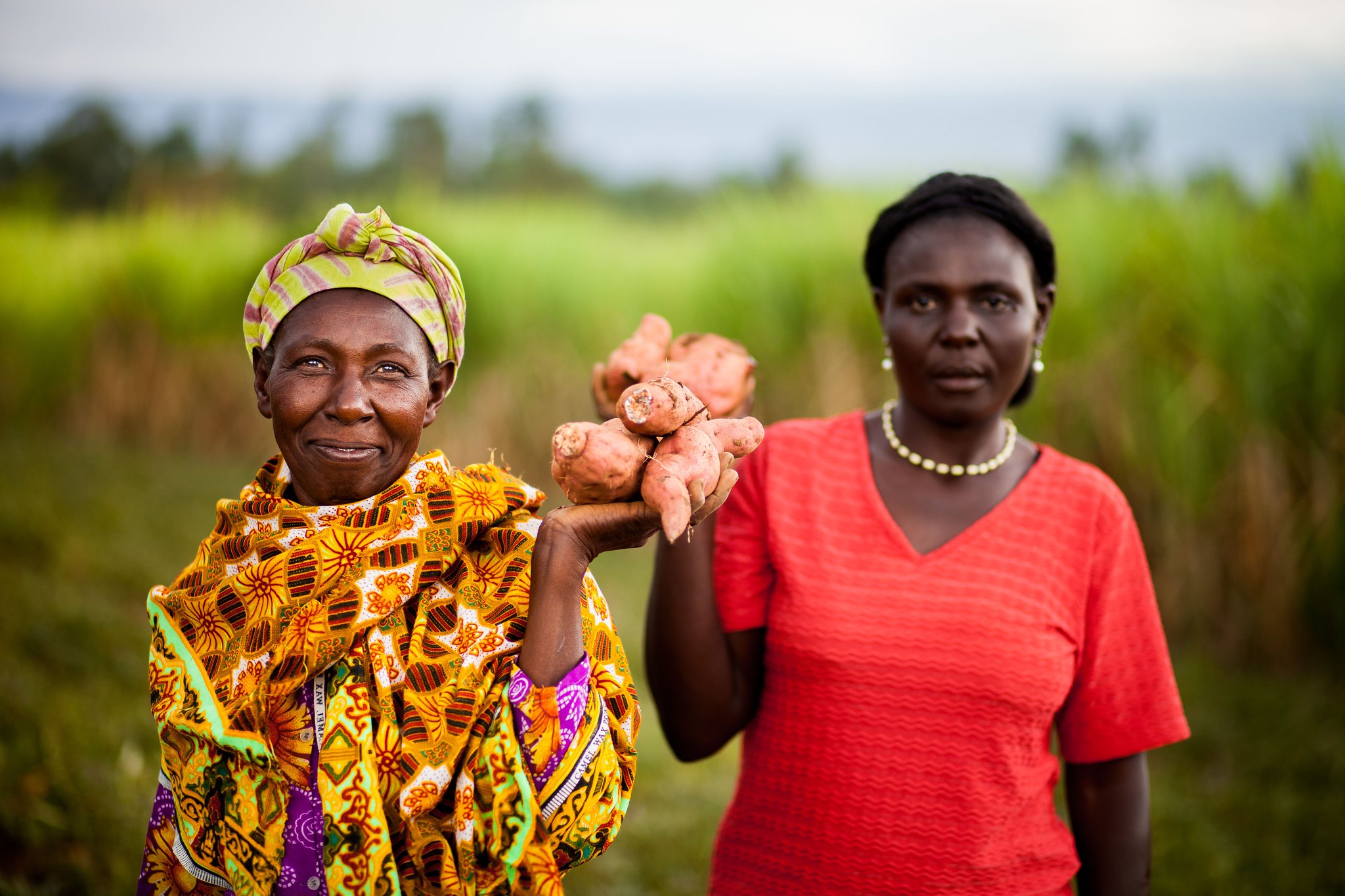Understanding Gender-Specific Constraints to Agricultural Technology: Evidence from Cassava Farming in Kenya

Growing Sweet Potatoes in Kenya | Fintrac Inc.
Study Context
Women farmers in low- and middle-income countries (LMICs) tend to have lower levels of agricultural productivity than men. Leading explanations to women’s slower adoption of new technologies, and thus decreased agricultural productivity include: 1) their lack of access to new technologies, 2) a lack of access to information. Overarching cultural norms might impede female farmers from gaining data from male agricultural extension officers.
Given that agricultural technology adoption has proven critical in increasing yields in Sub-Saharan Africa and throughout the developing world, it is important to understand why women do not adopt agricultural technologies at a similar rate to men.
Study Design
This pilot study in Kenya compared the effects of the two leading explanations for the difference in agricultural technology adoption rates between men and women, and tested the relative impacts of interventions designed to tackle each of them. The pilot examined the feasibility of using a randomized control trial to study the effects of two interventions on cassava adoption among female farmers, including delivery of cassava seeds (improved access) and the dissemination of cassava-related information through lead farmers (improved information).
Results and Policy Lessons
Key findings from this project suggested that 1) female farmers are indeed significantly less likely than their male counterparts to adopt improved varieties; 2) male lead farmers are less likely than female lead farmers to conduct trainings for female household members during house visits (despite all lead farmers being explicitly instructed to train females at their houses in the treatment group); and 3) 95 percent of female farmers prefer receiving training from a female lead farmer. Results also showed that lead farmers might choose different venues to conduct training for female farmers, and the seeds were mostly picked up at such venues instead of being sent to the farmers’ houses. These preliminary findings support the viability and importance of employing female trainers to teach female farmers about new agricultural technologies. In addition, results offer insights on ways to improve treatments such as having lead farmers provide follow-up training visits, using secret-ballot elections to choose lead farmers, and employing different groups of people to deliver the seeds.



